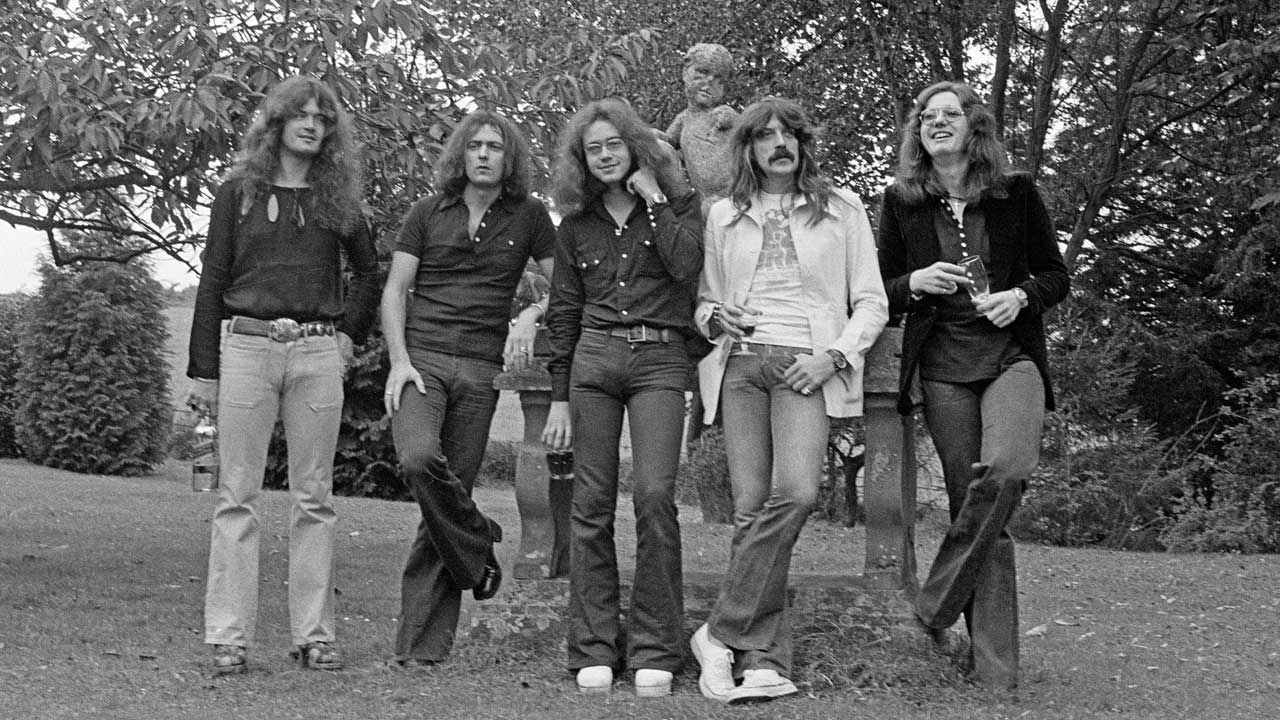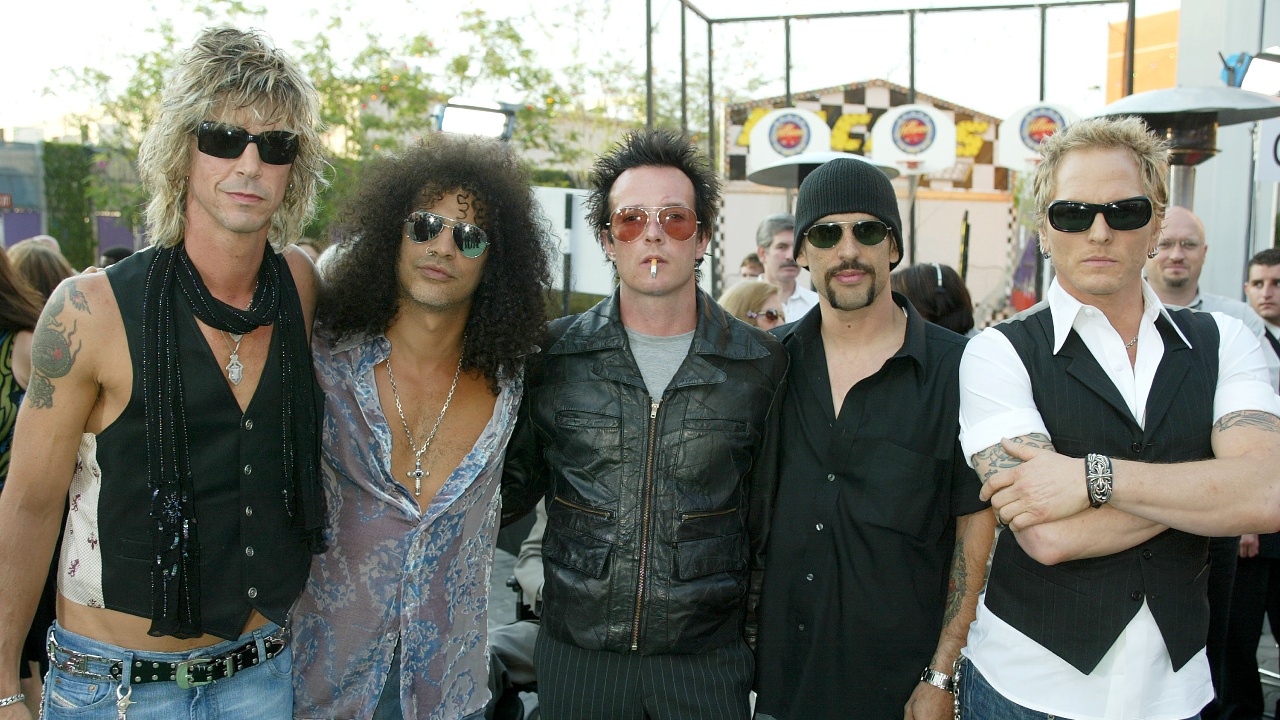Deep Purple: the turbulent story of Stormbringer and Ritchie Blackmore's exit
In 1974 Deep Purple were flying high, buoyed by the success of Burn and a fiery new line-up – but it soon started to disintegrate

Inspired and fired up by the injection of fresh blood and the success of Burn, Deep Purple undertook a short tour of Europe in December 1973, kicking off in Copenhagen, playing a set that featured virtually the whole of the album, four months prior to its release.
It was risky enough to unveil a new band – David Coverdale and Glenn Hughes had replaced Ian Gillan and Roger Glover – but to play almost all new material seemed suicidal. Fortunately the gamble paid off and over the next year Purple achieved new heights of success. The work of the previous two line-ups was beginning to pay off.
“With Burn we cleaned up,” said Coverdale. “You could hear a collective sigh from the management, because they were concerned about the changes, which is understandable.”
Elated by Purple’s newfound success, the management put the band to work and the inevitable arduous tours followed.
Straight after a British tour the band, now tax exiles, found themselves in Clearwell Castle. This was the same location where they rehearsed Burn and introduced the new line-up. It soon became apparent that a lot had changed since those heady, happy-go-lucky days. Both Coverdale and Hughes had established themselves in the hierarchy and proved their worth in series of spectacular live performances, including the legendary California Jam in 1974 which made them overnight millionaires.
Ritchie Blackmore was at a particularly low ebb, having to deal with a very messy divorce with his wife, Babs, and was unhappy with the direction the band was going in, with its introduction of funkier elements or what he called ‘shoeshine music’.
Regarding Ritchie’s attitude, Hughes said: “It hurt me because he knew I had become friends with Stevie Wonder, Luther Vandross and Herbie Hancock. It was embarrassing, because I have a lot of celebrated African-American musician friends. I don’t know how Ritchie feels about making this faux pas, [but] it still doesn’t cut it in today’s new world."
Sign up below to get the latest from Classic Rock, plus exclusive special offers, direct to your inbox!
"Me and Glenn were the Unrighteous Brothers,” added Coverdale. “We were huge R&B fans. Glenn was more comfortable being soulful, but that wasn’t necessarily Purple.”
Unlike with Burn there was virtually no material prepared for the new album, save for the bare bones of the title track, Stormbringer. Contrary to popular belief, the name wasn’t pillaged from the Michael Moorcock book, which Coverdale denies ever reading… although he curiously admits to finding a copy underneath his bed at home long after the track was recorded.
“I wrote two songs to please Ritchie, which was the science fiction poetry of Burn and Stormbringer,” said Coverdale. Another bone of contention reared its ugly head around the question of royalties.
“After Burn for the first time Ritchie said: ‘I’m not splitting everything five ways’,” remembered Coverdale. “That was greeted with great outrage by the guys who were not particularly composers. I think this was one of the things that contributed to Ritchie leaving the band. And then of course he put something together [Rainbow] where he totally controlled the show. Controlling Purple wasn’t quite that easy.”
With friction and resentment brewing, Purple moved to Munich’s Musicland studios to start recording Stormbringer. Immediately Blackmore found himself at loggerheads with the rest of the band. First when he tried to persuade them to include a cover version, Black Sheep Of The Family – one of his favourite songs by cult Vertigo act Quatermass. (This song would in fact appear on the first Rainbow album.)
The next conflict was down to a song which has since become a classic.
“Ritchie was furious that nobody was buying the idea of Soldier Of Fortune,” recalled Coverdale, still exasperated by the event. “They didn’t like it because it wasn’t balls to the wall.”
Ever the diplomat and still finding his place in the band, Coverdale managed to straddle both sides of the fence between Hughes and Blackmore. This has since proved beneficial as due to his many songwriting credits he recoups the majority of the royalties from Stormbringer.
“It was an album of compromise,” explained Coverdale. “It was a situation where Glenn’s a very powerful personality and I was much more confident of my situation, although I was still emulating everybody else as I had no schooling in how to behave like a naughty rock star.”
Glenn Hughes was in his element. As Blackmore faded into the background, the bassist came to the fore with a series of compositions like You Can’t Do It Right (With The One You Love), Holy Man and Love Don’t Mean A Thing. A song that sounds as if it came straight out of the Muscle Shoals studio, Love Don’t… was written on the band’s private plane, Starship, with a street busker from downtown Chicago. Hughes was fortunate enough to play the song in the studio to one of his musical heroes, Stevie Wonder.
Hughes said: “He touched my face and said: ‘You sure you are a white boy?’ To be acknowledged by your spiritual mentor was, and still is, nirvana. And I’ll tell you something funny: Blackmore’s funky on Stormbringer. It’s a fucking funky album.”
One is quite certain that Blackmore doesn’t echo those sentiments and you can audibly hear his apathy in Hold On, which features a guitar solo that sounds more like a sedated version of his hero Albert Lee.
“It’s just not Deep Purple,” said Coverdale. “I sat with Ritchie as he played the solo. He was talking to me, just holding one finger on the bass string. He didn’t give a monkey’s arse about it and that was uncomfortable for me. The big songs for me and Ritchie were Soldier Of Fortune, Lady Double Dealer and the title track.”
By the time the album got to the mixing stages Blackmore had totally lost interest and went back home, leaving Ian Paice and producer Martin Birch to lay down the finishing touches. Receiving mixed reviews and a lukewarm reception from the fans, in one interview Blackmore promised that the next album would be heavier – but this wasn’t to be, and halfway through a world tour he decided to call it quits. No one was surprised, least of all Hughes.
“We knew Ritchie was leaving,” he sighed, “and let me say this for the record, when he gave his notice in I wanted to leave too. I was thinking: ‘What’s the point?’ Now there’s another guy gone and it’s Ritchie Blackmore, god of the guitar along with Page and Beck, the holy trinity. It was David Bowie, who was living at my house, who convinced me to stay.”
Coverdale is probably right in saying that Stormbringer isn’t a Purple album. But that doesn’t stop it from being a fantastic collection of songs (with the exception of High Ball Shooter, which is only redeemed by a volcanic organ solo) but unfortunately it proved to be the undoing of the band.
Geoff Barton is a British journalist who founded the heavy metal magazine Kerrang! and was an editor of Sounds music magazine. He specialised in covering rock music and helped popularise the new wave of British heavy metal (NWOBHM) after using the term for the first time (after editor Alan Lewis coined it) in the May 1979 issue of Sounds.

